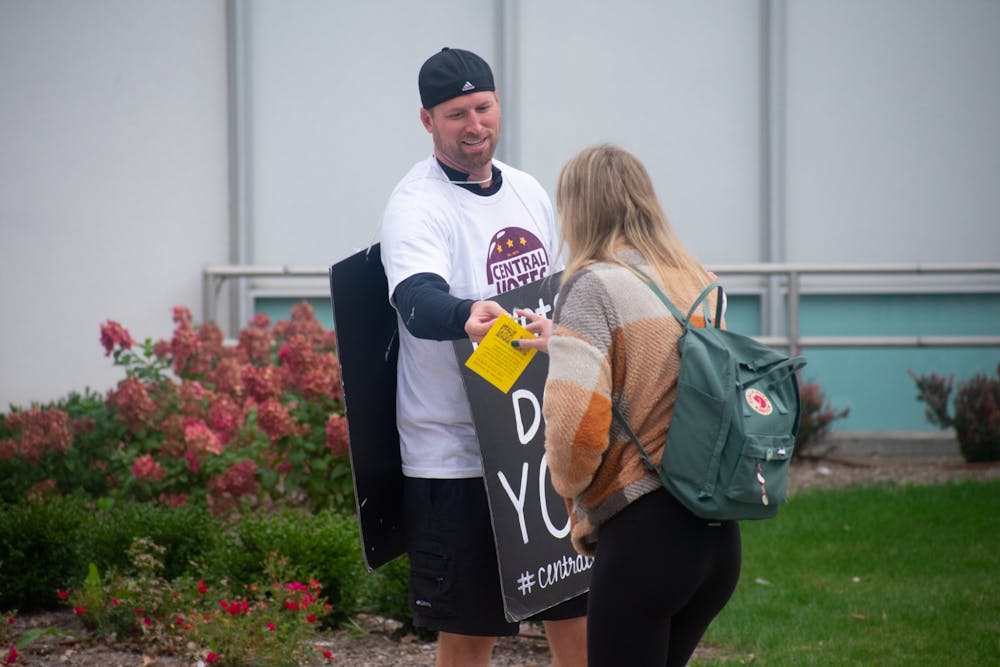Report shows big leaps in student voter engagement

A recent study published by the Institute of Democracy & Higher Education (IDHE) at Tufts University shows Central Michigan University students showed a significant increase in voter engagement during the 2020 election.
While all state universities saw a jump in voter turnout, CMU’s nearly 24 percent jump was especially noteworthy. This landed CMU over two percent higher than the national average of all institutions.
The National Study of Learning, Voting, and Engagement is participated by over 1,100 campuses nationwide with nearly 50 million student records spanning all types of higher education institutions.
“It shows that students care about voting and they're really excited to be engaged,” said Macomb senior Maddie Thomas, head of voter engagement and event coordinator for Central Civics. “We should continue to invest in more opportunities for students to get civically and politically involved on campus.”
Compared to the 2016 presidential elections CMU had nearly 5,000 less students enrolled. Despite a smaller population on campus, all aspects of student voting involvement rose.
Here are some main takeaways:
- The Registration Rate (percent of voting-eligible students who registered to vote) for CMU leaped by roughly 16 percent in just two years – with the Registered Student voting rate jumping from 46.8 to 76.5 percent.
- The voting rates of all races and ethnic groups also rose among all populations, with most now falling between 60-70 percent, up from roughly 30-50 percent in previous years.
- Ages were also included in this study, ranging from 18 to 50 and up. All eligible ages showed a leap in voter participation, with the most significant jump being in the 18-21 ages with a jump from 38 percent in 2016 to 70 percent in 2020.
- There was a clear drop in in-person voting on election day, favoring the "Not-In-Person" option and early voting options due to COVID-19 health and safety guidelines.
For more data, check out the full report below:
“We are, as a campus, committed to being as engaged in our democracy as we can,” Thomas said. “I know that there are a lot of students that are already dedicated to voting and being as involved as they can.”
Student organizations such as Central Votes and other groups like Central Civics and the Central Votes Coalition were hard at work during the election year. They continue to host educational events and register members of the campus community this semester.
Earlier this semester all three organizations collaborated for "Fire up the Vote" where they registered about 55 students and distributed voter information.
"The significance is that students have resources palatable toward them on why they should vote," said Ryan Coker, Senior and President of Central Votes. "A lot of people aren't actually taught these civil things all of the time; now they can make those decisions for themselves."
Central Votes and Central Civics will be hosting a workshop on writing to local representatives from 6:30 p.m. to 8 p.m. on Dec. 1 in the UC Terrace Rooms C-D.
The week after, Central Civics is partnering with the Institute of Transformative Dialogue for "Dinner Table Politics," an event all about engaging in political conversations with friends and relatives. It's being held from 6:30 p.m. to 8 p.m. on Dec. 8 in the UC Terrace Room D.
“Continue to vote and stay engaged,” Thomas said. “It’s one of the best ways to make your voice heard. CMU is here to support and give you all of the resources you need to make the best decision for you.”






